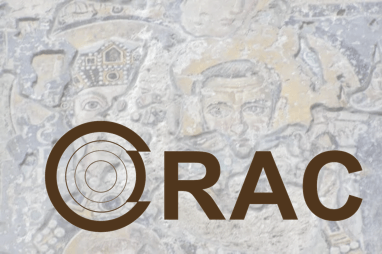Three young researchers’ projects in CRAC

25 01 2022
Three, out of nearly 40 applications from young scientists from all over the world, will be supported by calls for postdoc positions at CRAC.
Most of the applications were very good and a few could be described as excellent. Ultimately, the Selection Committee recommended Graham Claytor, Mateusz Kusio and Grace Stafford for employment. During the fellowships at UW they will carry out the following research projects:
- Mateusz Kusio “New Perspectives on the Delay of Parousia” — During his fellowship at CRAC dr. Kusio will finalise his work on a new critical edition, translation of, and commentary to the works of an early Christian Latin poet Commodianus. Next, he will embark on the investigation of how early Christians dealt with the fact that the Second Coming of Christ did not occur. This research will focus on the Patristic treatment of the Parousia promises in the New Testament on the one hand and, on the other, on the comparative study of ancient Jewish, Christian, and Graeco-Roman ways of thinking about the failure of oracles, prophecies, and divine promises.
- Grace Stafford “Sacred Journeys, Sacred Lifestyles: Gender, Monasticism, and Pilgrimage in the Late Antique East” — This project will examine the relationship between women’s pilgrimage and women’s monasticism in Egypt, the Near East, and Asia Minor during Late Antiquity (c. fourth – seventh centuries CE). The primary question will be whether the presence of gender-segregated women’s monasteries facilitated female pilgrimage, and if so, how this may have been achieved. To answer these questions, the project will analyse material and textual evidence from ‘hybrid’ monastery-pilgrimage sites. This research will help to better understand the role of women’s monasteries within wider communities and systems of religious travel, as well as addressing questions about the gendered nature of mobility in this period.
- Graham Claytor “A Peasant Family in Early Roman Egypt: The Archive of Harthotes” — This project is devoted to a full edition of the archive of Harthotes, a set of family papers belonging to a peasant family in early Roman Egypt. A major theme of the archive is debt and family labour, best exemplified by the story of Tahaunes, Harthotes’ young daughter, who was sent to live and work at an imperial oil mill as an indentured servant. The project reunites these family papers and explores how they navigated the demands of state and society over multiple generations.